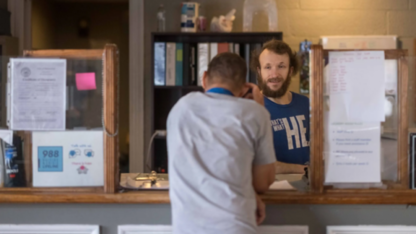State lawmakers have passed a sweeping overhaul of Georgia’s mental health system. The House Speaker David Ralston-backed bill makes a host of major changes, including a requirement that all health insurance plans cover mental health conditions as they do physical ones. Now, addiction and mental health advocates who’ve been working on the bill for years are cheering its passage.
On Tuesday, lawmakers’ late-night negotiations resulted in language that dramatically improves access to mental health services across the state, says Jeff Breedlove, with the Georgia Council on Substance Abuse.
“It’s so simplistic, just writing the definitions,” he says. “But that sets the foundation for every decision made about care and coverage.”
The bill writes into Georgia law evidence-based, nationally recognized protocols for addiction and mental health treatment. It requires insurance companies to track and report on compliance with the law. And guidelines put providers and patients at the center of treatment decisions.
Kim Jones heads up Georgia’s National Alliance on Mental Illness. She says the bill also provides more accountability to patients and their families.









